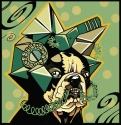|
I think you could do a lot worse than these guys. However, as we are nitpicking and MrFurious covered the general stuff, I'll look at the hunting: - They "specialize" in 3 different breeds and have only been running since 2008 - They mentioned on a separate website that they breed for a "combination of conformation, performance and socialization". Most hunters I know laugh at conformation garbage. - Their testimonials don't say anything about trials or hunting or older dogs however they do say a lot about how their new puppies are great with kids? - They don't say anything at all about introduction to live birds or a single word about training - I also disagree with the dewclaw removal but I think the breed standard calls for it? - They seem to mostly breed their own dogs and it seems like they put out a lot of puppies a year I would conclude that these guys are into breeding their own dogs to create family friendly dogs who like to hunt and are probably birdy. There's nothing wrong with that and that's very similar to what I was looking for when I got my lab. The field trial dogs tend to be extremely high drive/high energy. On the other hand, the facilities do look pretty nice and I love seeing puppies getting used to young kids. 
|
|
|
|

|
| # ? May 13, 2024 23:28 |
|
Ikantski posted:- They seem to mostly breed their own dogs and it seems like they put out a lot of puppies a year I'm not a hunter, so I can't comment on anything else, but on this point I'd like to comment that I do believe it's a problem if they're breeding their own dogs together. A good breeder should be selecting mates for their dogs from outside breeding stock to keep Coeffecients of Inbreeding (COI) low on their puppies. COI can be a huge point or argument among the experts and academics, but they all agree that high is bad and represents a higher likelihood of genetic issues such as hip dysplasia (and a host of others). The argument is typically over how far back in the genetic line they need to go to measure it accurately. As an example, I have a Golden Retriever, a breed with a typically high COI because it's so commonly bred as a family dog by BYBs. We picked out our breeder because we were very happy with her breeding practices and a host of other things, although as a trainer she's pretty old school. Our dog's 10-year COI is 1.99% where the breed average is roughly 10%
|
|
|
|
The only comment I will make on the inbreeding coefficient is that its utility depends entirely on the genetic makeup of the foundation stock you use. Once the studbook is closed, the alleles you have in the population are the ones that are going to stay there. If your founder stock (with respect to the pedigree you're constructing) were already purebred dogs, you were already drawing from a limited gene pool in the first place and inbreeding coefficient has a very limited and speculative utility when discussing health of any individual in the population. Topoisomerase fucked around with this message at 06:57 on Nov 27, 2012 |
|
|
|
Topoisomerase posted:you were already drawing from a limited gene pool in the first place and inbreeding coefficient has a very limited and speculative utility when discussing health of any individual in the population.
|
|
|
|
Working breeders just about never outcross anything ever in my breed and they all live to be 100. There's my anecdote!
|
|
|
|
Rixatrix posted:It does (even then) give you an idea on how quickly you are losing material from that limited gene pool in general if you look at the whole breed. I didn't say that it didn't, but to use it to predict anything about a single member of the population is dangerous. That was my point.
|
|
|
|
Topoisomerase posted:I didn't say that it didn't, but to use it to predict anything about a single member of the population is dangerous. That was my point. Do you feel that I misrepresented or incorrectly assessed anything above in the discussion of inbreeding?
|
|
|
|
MrFurious posted:Do you feel that I misrepresented or incorrectly assessed anything above in the discussion of inbreeding? Well, for one, I don't think 10% is a very high average to say that Goldens especially have a problem with inbreeding. By nature any population with a closed studbook will be inbred. That's absolutely inherent to purebreds. If you don't want an inbred dog, don't get a purebred dog. 10% is actually pretty moderate for a closed studbook breed. However, it's kind of a shot in the dark as to what that actually MEANS for an individual IMO - if one were to evaluate the same with genomic markers it could be way off from that estimate in either direction. In a population sense it's good to cover your bases if all you have is pedigree analysis, but I think in purebred dogs with the tools we have now we can do better than that. I mean if we're going to say we're breeding individuals for diversity why not screen both parents for heterozygosity and compare that to other members of the breed?
|
|
|
|
Superconsndar posted:Working breeders just about never outcross anything ever in my breed and they all live to be 100. There's my anecdote! they live off of the blood of babies and roids that doesn't count
|
|
|
|
What if their foundation stock (this breeder we're being asked about) are all fairly distantly related to one another? I don't know how large the starting amount of viszlas or Weims is, but let's say they got their stock from several different breeders and that the dogs they are breeding aren't any closer than say, 2nd cousins. Not ideal, but still, its not like a brother sister or grandaughter to grandfather pairing in terms of crazy inbreeding. I wouldn't see a problem with that if the dogs are health tested (and their status for heritable diseases common to the breed is known) so that you can avoid pairing carriers etc.
|
|
|
|
Topoisomerase posted:Well, for one, I don't think 10% is a very high average to say that Goldens especially have a problem with inbreeding. By nature any population with a closed studbook will be inbred. That's absolutely inherent to purebreds. If you don't want an inbred dog, don't get a purebred dog. 10% is actually pretty moderate for a closed studbook breed. That's a fair point, but given that registration on the k9data site is voluntary by owner, there's likely a bias towards lower COI because Average Joe isn't interested. This is the sort of thing dog nerds are doing, who are more likely to be concerned about things like this. I am certainly not trying to suggest that because my dog has low COI, she is immune to genetic defects, but I do believe that it suggests that the breeder is paying attention to common health issues within the breed and attempting to avoid them, which is the best you can hope for if you are going for a purebred dog.
|
|
|
|
wtftastic posted:What if their foundation stock (this breeder we're being asked about) are all fairly distantly related to one another? I don't know how large the starting amount of viszlas or Weims is, but let's say they got their stock from several different breeders and that the dogs they are breeding aren't any closer than say, 2nd cousins. Not ideal, but still, its not like a brother sister or grandaughter to grandfather pairing in terms of crazy inbreeding. I wouldn't see a problem with that if the dogs are health tested (and their status for heritable diseases common to the breed is known) so that you can avoid pairing carriers etc. The issue goes back farther than the specific breeder's foundation stock. When I say founders I mean the dogs at the top of the pedigree. Their genes are all the population has. So if their genetic makeup is very similar to each other, but they're at the top of the pedigree so they're being represented as totally unrelated, you can see where that can cause an issue where you can only interpret the inbreeding coefficient relative to them. You can say "we are trying to preserve this % of founder alleles" but you can't really say that those alleles are necessarily different from each other which is the entire point of an inbreeding coefficient - to estimate the % of alleles between two individuals that are likely to be identical by descent (meaning they came from the same ancestor).
|
|
|
|
MrFurious posted:That's a fair point, but given that registration on the k9data site is voluntary by owner, there's likely a bias towards lower COI because Average Joe isn't interested. This is the sort of thing dog nerds are doing, who are more likely to be concerned about things like this. Actually since a lot of BYBs kind of breed their dogs indiscriminately, I'd be willing to bet that in comparing two populations from the same breed you'd have a higher average inbreeding coefficient amongst the dog nerd types than the BYB types. Inbreeding is one thing we cannot sit here and point fingers at BYBs for.
|
|
|
|
Topoisomerase posted:The issue goes back farther than the specific breeder's foundation stock. When I say founders I mean the dogs at the top of the pedigree. Their genes are all the population has. So if their genetic makeup is very similar to each other, but they're at the top of the pedigree so they're being represented as totally unrelated, you can see where that can cause an issue where you can only interpret the inbreeding coefficient relative to them. You can say "we are trying to preserve this % of founder alleles" but you can't really say that those alleles are necessarily different from each other which is the entire point of an inbreeding coefficient - to estimate the % of alleles between two individuals that are likely to be identical by descent (meaning they came from the same ancestor). Oh I realize that. I meant more that (from my point of view) since the stud books/ breed registries for most breeds are closed, there's no real point in saying "x has inbred dogs" unless we're saying that they're specifically breeding very closely related dogs or semi-closely related dogs. All dogs in the same breed must be related to some degree because they're from the same small pool of foundation dogs. I understand that COI gives us important information, but I don't really think any of what we're discussing really relates back to that specific breeder, I guess.
|
|
|
|
wtftastic posted:Oh I realize that. I meant more that (from my point of view) since the stud books/ breed registries for most breeds are closed, there's no real point in saying "x has inbred dogs" unless we're saying that they're specifically breeding very closely related dogs or semi-closely related dogs. All dogs in the same breed must be related to some degree because they're from the same small pool of foundation dogs. I understand that COI gives us important information, but I don't really think any of what we're discussing really relates back to that specific breeder, I guess. But if we're trying to say that a low COI = a healthier dog, then what really matters is the actual genetic makeup of the dogs involved, right? That's where it does relate back.
|
|
|
|
Topoisomerase posted:Actually since a lot of BYBs kind of breed their dogs indiscriminately, I'd be willing to bet that in comparing two populations from the same breed you'd have a higher average inbreeding coefficient amongst the dog nerd types than the BYB types. Inbreeding is one thing we cannot sit here and point fingers at BYBs for. You're absolutely right, I hadn't considered that point and I don't know why. I'll concede the point. I do want to clarify that I'm not attempting to suggest that low COI means a healthier dog, but rather a better and more responsible breeder.
|
|
|
|
Topoisomerase posted:But if we're trying to say that a low COI = a healthier dog, then what really matters is the actual genetic makeup of the dogs involved, right? That's where it does relate back. Sure, but how many breeds as a whole suffer from high COIs just because the breed registry is so insanely small (like Nova Scotia Duck Tolling Retrievers? or Pugs? etc)? If the breed registry is larger, I'd absolutely agree with you that low COIs show breeders who are doing their best to breed responsibly (and arguably, improve the health of their breed). In those other breeds, I guess breeders could just do their best to try and find individuals whose offspring would have lower COIs than average, if at all possible. (Also how do we know the COIs for the dogs/ puppies in this case?)
|
|
|
|
There's a battle about Tollers right now and I'm pretty sure the problems that pugs have are not related to their population size but to their horrible conformational standards. I digress though. To simpify it down to its roots, my whole entire point is that the amount of dogs in any breed right now makes absolutely no difference. The ONLY thing that really matters to the potential amount of diversity you can get in the breed is the size of the founder population and how evenly the alleles from the founder population are distributed. The whole point of purebred animals is to create animals that look and act relatively similarly so it is necessary that they are going to have similar genetic makeups as well. I think pedigree analysis has its place, but I'd caution against making too many decisions based on it. It's just too inaccurate and problematic.
|
|
|
|
Topoisomerase posted:There's a battle about Tollers right now and I'm pretty sure the problems that pugs have are not related to their population size but to their horrible conformational standards. I thought in Pedigree Dogs exposed they talked about pugs but it was probably something like King Charles Cavalier Spaniels or something like that. What you've been saying makes sense now- I think I've been trying to say the same things and haven't really been expressing myself well or have been having a hard time getting down to brass tacks with it.
|
|
|
|
What is the best way to clean dog feces stains from hardwood? Google gives some helpful hints, but it is hard to gauge if there is a best practice.
|
|
|
|
Nature's Miracle?
|
|
|
|
I'm sure it's been discussed a thousand times in this thread before, but how can I curb barking? I've stopped crating my dog at night because he's quite trustworthy and I notice that he sleeps a lot better when he's outside of it. The problem, though, is that he likes to sleep in the living room, and I have bay windows and crappy curtains. When he sees people outside, he barks. If he doesn't notice you, it's fine, but the second he sees you, he's barking his head off. Looking online, the general tip seems to be "wait til he stops for a second then treat for the silence" and gradually raising the time increment. Is that the best way to go? He's almost 7 months old and this is a new-ish development. If my question is better suited in the training thread, let me know and I'll head over there!
|
|
|
|
What breed is he?
|
|
|
|
Newfoundland.
|
|
|
|
I'm copy/pasting my contribution to the Yappy Rats thread. ---- There are multiple ways to approach dog barking. Some breeds are barkier than others, so while you can drastically reduce barking through consistent training, you cannot expect to completely extinguish the behaviour. First, some basics:
Limit your dog's access to windows or other bark-inducing stimuli when you're not around. You can train all evening, but if your dog is free to bark during the day you're not going to make much progress. Barking is a self-rewarding behaviour that is not going to extinguish on its own. Limit your dog's access to a yard unsupervised. As said above, if your dogs are barking like crazy outside then you're going to be undoing much of the work you're doing inside. Exercise! A lot of dogs bark when they're bored. They have pent-up energy and barking is the most obvious outlet for it. When they're understimulated they're going to make their own fun, and 98% of the time what a dog determines fun is not going to gel with living peacefully with humans. Determine your dog's triggers so you can preempt barking fits. The fewer opportunities your dog has to repeat the behaviour the faster you'll be able to train it to live quietly. Be consistent! Since some dogs like barking for the pure joy of it you're going to have to go out of your way to be consistent with your training. Don't slack off. The process of training your dog not to bark is a long and slow one. Dogs bark to alert you of a disturbance. Sometimes it's helpful to acknowledge your dog's alert and then go back to business as usual. "Thank you Marlo, I see the mailman/car/dog/plastic bag." So, everything mentioned above is about managing a dog who likes to bark. Now comes the other part, teaching them not to bark. There are two basic ways to do this: operant conditioning and classical conditioning. Operant Conditioning: This is the basic process of teaching a dog (or person or rat or...) to voluntarily modify their behaviour through the application of reinforcement or punishment. This is teaching your dog what you want it to do. Clicker training comes in very helpful here. You want to start by marking the behaviour you want, either with the clicker or your marker word (yes! or whatever you choose). You can wait for your dog to bark and wait for the silence afterwards. In that split second of silence you mark it and reward with a treat. It might be easier for you to set up a situation where your dog is likely to bark to reinforce the silence afterwards (have a friend open the door, or walk down the hallway, etc). Once your dog starts looking at you expectantly for a treat after a bark (this means that the dog understands that a treat is coming for the quiet) then start adding the verbal and/or physical cue (quiet or shhh with a hand up to your mouth, etc). With enough repetitions congratulations, you've taught your dog what quiet means. Now you want to begin introducing the cue while they're barking. Start slowly at first -- if your dogs bark like crazy when a dog is outside the window don't immediately jump to working on this situation. Instead try it with a person outside, or any lower-intensity type stimulus your dog reacts to. Give your dog the command and if they're quiet for even a split second reward like crazy -- jackpot! Reward heavily when a dog complies to a quiet command. Use awesome treats that the dog will miss if he doesn't comply. That's the basic idea behind operant conditioning. You want to focus on rewarding for good behaviour and ignoring the bad. If you opt to use punishment to quiet a barking dog you're going to raise the anxiety level and you're effectively working against yourself -- anxiety is what causes a dog to bark. Which brings me to: Classical Conditioning Some of the reasons dogs bark is that they're insecure, fearful and anxious. So a very effective way to eliminate barking is to change how your dog feels about certain stimuli. You are going to be counter conditioning an emotional response through desensitization and repetition. Remember Pavlov? He classically conditioned dogs to salivate to the sound of a bell through sounding the bell before a dog was fed. Through repetition the dogs subconsciously associated the bell with the arrival of food, and would give the same physical response even with no food present. The bell was the predictor of good things, and all this happened on a very basic reptilian level. So, you, as the owner of a barky dog, want to work on changing the dogs emotional reaction to a stimulus by making it the predictor of good things. A basic way to go about this is to have a handful of treats and pair it with a knock at the door. Knock, treat, knock, treat regardless of whether your dog is barking or not. With enough repetitions the knock at the door will be Pavlov's bell, and will be subconsciously paired with the arrival of food. Now the knock at the door isn't so scary, and there is less reason to bark. You can do this with just about anything. If your dog reacts to other dogs walking down the street as soon as your dog notices the other start shoveling food into its mouth. This basic principle can be applied to so many kinds of behaviour modification to remove the negative learned association your dog has, and replacing it with warm fuzzy feelings. The ultimate goal of classical conditioning is to get your dog operant so actual learning can occur. A lot of people try to leap to working operantly when the dog is so riled up that it is physically impossible for the dog to react to commands. You can use both operant and classical conditioning together. Use operant when your dog is operant, and classical when your dog is not. It's a wonderful positive method that can be very successful in reducing dog barking if done correctly. Books I would recommend for further reading: Fight! A Practical Guide to the Treatment of Dog-Dog Aggression by Jean Donaldson Don't Shoot the Dog! The New Art of Teaching and Training by Karen Pryor
|
|
|
|
Gonna ask this question here as this really isn't a training issue. The lab I rescued has started to chew and rip up his bed. I think he may be bored but Could this be separation anxiety as well? He doesn't whine when we crate him and I go home and let him out for an hour at lunch. Hes torn into his bed at night and during the day when we're gone. I feel this is my fault for not giving him enough toys to keep him occupied in the crate, I took away his ropes as he was tearing them apart and eating them. We take him to a training class tonight and we're gonna stop at petsmart and get him some new toys as well so I'm hoping that helps. Any thoughts?
|
|
|
|
|
Langolas posted:Gonna ask this question here as this really isn't a training issue. The lab I rescued has started to chew and rip up his bed. I think he may be bored but Could this be separation anxiety as well? He doesn't whine when we crate him and I go home and let him out for an hour at lunch. Hes torn into his bed at night and during the day when we're gone. I feel this is my fault for not giving him enough toys to keep him occupied in the crate, I took away his ropes as he was tearing them apart and eating them. We take him to a training class tonight and we're gonna stop at petsmart and get him some new toys as well so I'm hoping that helps. How much exercise does he get?
|
|
|
Invalid Octopus posted:How much exercise does he get? I take him out 2-3 times a day for 30+ min each plus we do training and play in house. He gets a good deal cause I know that would cause him to have excess energy. My friend will stop by on random days as well and take him out for an hour or two if he has time or needs to escape his job. I'm an outdoorsy person so I love taking him out. Great companion to have out with me
|
|
|
|
|
Langolas posted:I take him out 2-3 times a day for 30+ min each plus we do training and play in house. That's pretty well the bare minimum for a young lab. I would guess it's a combination of boredom and excess energy. We found that antlers were the best chew but don't use old ones, they splinter a lot faster. We wouldn't put the whole thing into the crate, just kind of push half of it through the wires so he couldn't really crunch into it. Peanut butter in kongs that are jammed in the bars, particularly the roof will keep him busy for a while. We never found any toys in the store that he couldn't destroy. Try to figure out a way to get him more tuckered out before bed.
|
|
|
Ikantski posted:That's pretty well the bare minimum for a young lab. I would guess it's a combination of boredom and excess energy. We found that antlers were the best chew but don't use old ones, they splinter a lot faster. We wouldn't put the whole thing into the crate, just kind of push half of it through the wires so he couldn't really crunch into it. He just demolished a raw hide bone, I've had an antler for him to gnaw on since day one but he hasn't been a fan of it. Got him some new kong toys, played ball with him for the past 2 hours after getting back from his first training session. Hopefully he passes out tonight big time, gonna take him out for an hour in the morning. Anyone heard the bit that you shouldnt take labs/maybe other dogs out running with you until they are about 1.5 years old? Something about bones being too soft still and we don't want to damage them. Trying to plan out when I can take this pup running with me to help burn off some of his energy. I know he'll love getting a 3-6 mile run in every morning
|
|
|
|
|
Langolas posted:He just demolished a raw hide bone, I've had an antler for him to gnaw on since day one but he hasn't been a fan of it. It was a couple of pages back but it was regarding joints and impact damage at a young age. Generally I believe the advice was keep running/repetitive high impact activity to a minimum until the puppy is closer to adulthood. Sprints here and there should be fine though.
|
|
|
Thwomp posted:It was a couple of pages back but it was regarding joints and impact damage at a young age. Generally I believe the advice was keep running/repetitive high impact activity to a minimum until the puppy is closer to adulthood. Sprints here and there should be fine though. Nice thanks thwomp. Bought the pup some new kong toys at his first trip to Petsmart to help socialize him more. He was in dog heaven, he just pranced around the house with a toy with glee. Hes having a hard time tearing apart the rubber Frisbee we got, he loves it so much. And a nice heavy rubber ball he can break things with, he could care less about other toys he just wants a ball and a Frisbee.
|
|
|
|
|
I know we just talked about barking but has anyone had any luck with any of the anti-barking sonic devices? I read great reviews and then I read how some dogs get used to the device and ignore it. I am very anti shock collar but are these devices also considered inhumane or cruel? I need to get something stat as we just got a complaint regarding our dog barking. She doesn't constantly bark but she does get excited sometimes about the cats or barks when she's playing or wants attention. I really don't want to make my neighbor miserable and would like to show that we're at least attempting to correct the problem. I don't think ignoring the barking is going to work as we've tried doing that since we got her and it really hasn't worked too well.
|
|
|
|
I Might Be Adam posted:I know we just talked about barking but has anyone had any luck with any of the anti-barking sonic devices? I read great reviews and then I read how some dogs get used to the device and ignore it. I am very anti shock collar but are these devices also considered inhumane or cruel? I regard them as relatively ineffective. They might work in the very short term, but they do not work in the long term. Same is true for the citronella collars. Barking tends to fall into three categories: 1: Bratty Barking - barking to get attention. Example - your dog brings you a toy, drops it at your feet and then barks at you in attempt to get you to play, or barks to be let outside. 2: Barrier Frustration - barking out of frustration because they want to get to something they can't. Example - dog runs to the window and barks at children playing outside because it would like to play, but can't get to them. 3: Reactive Barking - barking out of fear or aggression at a target in attempt to make it go away. Example - a dog snarling and barking at the fence outside when someone gets too close. This is a very simplified categorization and the lines are not black and white here, but step one is to attempt to categorize why your dog is barking and when. If the problem is that there is too much barking during playtime, I would categorize that as bratty barking. Make a new rule that as soon as she barks, the game is over and whatever toy you're using goes back in the box for at least 10 minutes.
|
|
|
|
I would say that it's bratty barking and barrier frustration barking. She barks most when she wants attention and I know that's because she's bored. We take her for extensive exercise several times a week but you can see a difference in her behavior when she goes a few consecutive days without extensive play time. A tired dog is a good dog and this definitely describes her. The other barking she does is from her crate. We have never had an issue with her sleeping all night but she typically starts barking at a set time every morning and I don't know what happened to her but just this week, she's been barking at odd hours of the night. An hour after bed and then she started up at 4am one night. We're signing her up for obedience classes very soon as she has some other adolescence issues we'd like to work with her on. I just hope the barking will stop soon as I really don't want to piss off our neighbor anymore.
|
|
|
|
I live in an apartment, and I have pretty barky dogs - the big one barks during play and the small one was a bad alert barker. We had a dispute with the landlord, so we felt it was vitally important to keep the dogs quiet when we first moved in. I bought a citronella collar to use on the tiny dog and I've been quite happy with the results. It served as an interrupter with much better timing than I could hope for. Once it had interrupted the barking I would offer food and praise and play for keeping quiet. I used this as a compliment to basic counter conditioning to strange noises, neighbour sounds, etc. I also ensure that both dogs are well exercised and more interested in sleeping when they're at home. Long lasting treats are a good time killer/energy drainer for when you're not home too. The collar will only suppress the desire to bark if you don't pair it with proper training, and you're likely to see the barking reemerge at a later date.
|
|
|
|
I Might Be Adam posted:I would say that it's bratty barking and barrier frustration barking. She barks most when she wants attention and I know that's because she's bored. We take her for extensive exercise several times a week but you can see a difference in her behavior when she goes a few consecutive days without extensive play time. A tired dog is a good dog and this definitely describes her. We only feed our dog via treat dispensing toys as it's a fantastic way to burn off some energy for them when you don't have time to do it yourself. You also might look into nosework as this excellent for really exhausting your dogs. quote:The other barking she does is from her crate. We have never had an issue with her sleeping all night but she typically starts barking at a set time every morning and I don't know what happened to her but just this week, she's been barking at odd hours of the night. An hour after bed and then she started up at 4am one night. There's not enough information here to know why she's doing this. The inference is that she's just bored and ready to get up, but you need to be sure it's not an issue of her needing to go to the bathroom (how old is your dog?), or a mild case of separation anxiety, because those should be treated differently. If it's an issue of her wanting to be let out to play, your best bet is to ignore it, as painful as it is. Every time you give her attention when she's making noise, you're increasing the likelihood that she will do it again. Make sure she's tired before bed so she's not being forced to just lie quietly for 8 hours and she does actually sleep. I also put a shroud over my dog's crate as it seems to help her tune out the rest of the world. Lastly, make sure that you're being fair to your dog and keeping a routine schedule. Dogs like routine, so if you're varying what time you go to sleep and get up, you're making it very confusing for her.
|
|
|
|
Our dog is a 4 1/2 month old Corgi. Routine: 7:30 - let out of crate, go outside for short walk and bathroom break 8:30 - crate 12:00 - let out for short walk and bathroom break 1:00 - crate 4:00 - out for bathroom and play time in the apartment 5:30 - I typically come home and take her to the park for a couple of hours but it's not every day. - rest of evening is allowing her free roam and we play with her on and off. 9:30 - short walk and bathroom 10:00 - Bedtime crate, this is the general time she goes to bed. Sometimes it's a little later or earlier but it really depends on her mood. * She does go out for bathroom breaks when she asks or looks like she's sniffing around the door. We've had her for 3 months and we were very surprised at how she got used to her crate at night. We do have a blanket over the top of her crate and we put a towel over the front. It seems to put her at ease and she's less likely to bark. I understand all of this most likely falls under the category of puppy behavior but with this recent complaint, I feel we need to step it up and solve this problem sooner than later. I Might Be Adam fucked around with this message at 20:15 on Dec 6, 2012 |
|
|
|
Out of crate time: 8 In crate time: 16 She's spending quite a bit of time in her crate at an age where she's bursting with energy. I'd strongly recommend you start getting some interactive treat dispensing toys for those breaks where she's out of her crate so she's tuckered out when she goes back in. vvv -- I agree, personally. It's not something I would tolerate on a regular basis for my dog, but lots of people also do this successfully with their own animals and I'm a snob, so I don't want to bash anybody for it. Especially if this is an animal adopted from a shelter, it's getting a better life than it would have in that shelter, and while it might not be up to my personal snotty standards, the owners should be praised just for doing as much as they have and attempting to be the best owners they can be. I do think most people that do it successfully do so with older dogs though. Puppies are hellions. MrFurious fucked around with this message at 22:51 on Dec 6, 2012 |
|
|
|

|
| # ? May 13, 2024 23:28 |
|
MrFurious posted:Out of crate time: 8
|
|
|




















